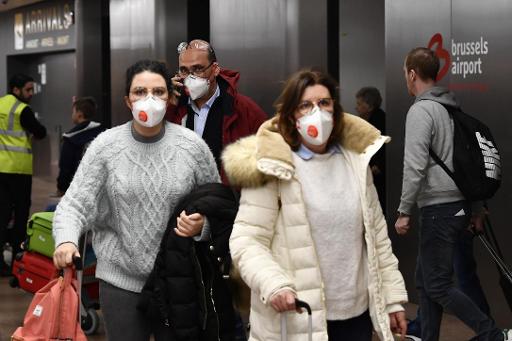Several countries are preparing measures to try to slow the further spread of the coronavirus (Covid-19), now that infected people are turning up rapidly all over Europe.
On 4 March, over 3,300 people in Europe have been infected with the new coronavirus, and over 80 deaths have been recorded, according to figures by the European Centre for Disease Prevention and Control.
Italy
The Italian government plans to close all schools and universities until mid-March to deal with the coronavirus outbreak, according to the Italian press agency ANSA. However, an official notice has not yet been issued.
11 of Italy's municipalities in the north of the country are in quarantine.
France
"The armies stand ready to intervene if necessary" to support the services of the State in the face of the Covid-19 epidemic, said Florence Parly, the Minister of the Armed Forces, on Wednesday.
The military hospitals "stand ready to receive the sick" and "have already received some," she said.
Germany
"The next step" in the event of a worsening of the epidemic will be to "concentrate the capacity on seriously ill patients" by postponing non-urgent operations, said Health Minister Jens Spahn on Tuesday, "but we are not there yet", he added.
Quarantining entire cities or regions will only be decided as a "last resort," Interior Minister Horst Seehofer said.
United Kingdom
The country will be able to close schools, encourage working remotely and "reduce the number of large gatherings" in an effort to delay the epidemic.
If the situation worsens, the police should "concentrate on serious crime and law enforcement" and hospitals should delay non-urgent interventions.
Poland
The Polish parliament adopted a series of exceptional legal measures on Monday night.
According to those measures, the government could, in the event of an epidemic, limit certain civil rights and freedoms, impose exceptional burdens on the public administration, circumvent the public procurement code, intervene directly in the medicines market or deploy the army.
The text, however, has yet to be approved by the Senate and the Head of State.
Estonia
The police and border guards will be able to be mobilised to apply quarantine measures if necessary, according to Estonian Interior Minister Mart Helme.
Greece
The Greek government decided on several measures, contained in a governmental decree, that provides for the possibility of a temporary travel ban to and from countries with high numbers of infected people, as well as the requisitioning of beds in hotels and private clinics.
The decree also provides for the temporary closure of "covered areas for public gatherings", such as schools, places of worship, cinemas, theatres, gymnasiums and businesses.
Norway
In the case of an emergency, all operations unrelated to the coronavirus scheduled in a hospital could be postponed, especially in intensive care units requiring respiratory assistance.
The Netherlands
The Dutch Health Minister has recommended an increase in medical staff, and the search for alternative sites outside of hospitals to accommodate patients who testes positive for the virus.
The Brussels Times

